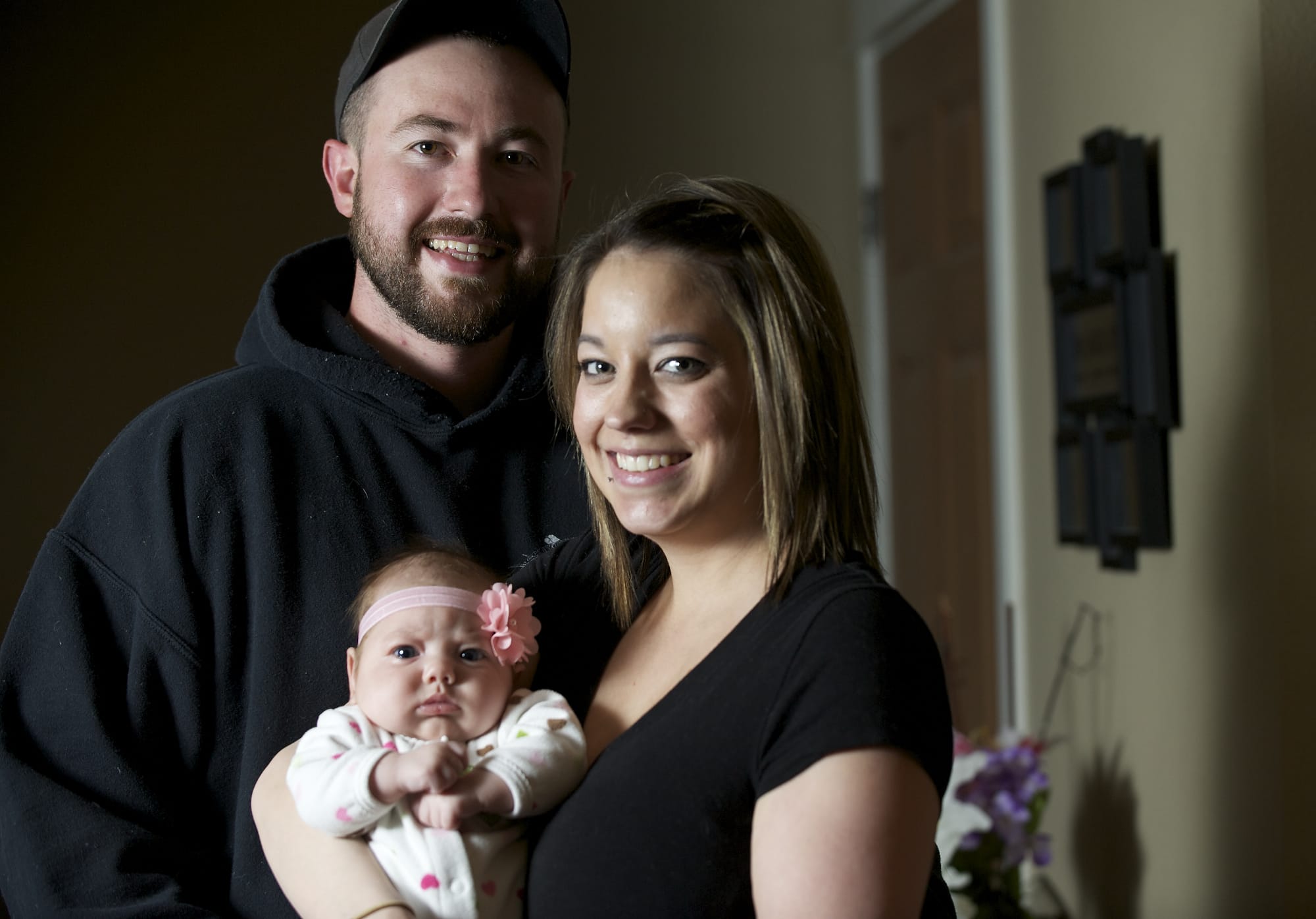• Couples can receive genetic counseling and recessive genetic disease carrier screening prior to conceiving a child. “We are really trying to encourage people to get formal genetic counseling before pregnancy,” said Lindsay Conant, a certified genetic counselor at PeaceHealth Southwest Medical Center.
Cessiley Southard was first offered genetic screening when she was 12 weeks pregnant. At the time, she and her boyfriend, Stephen Vroman, had no interest in the testing.
“We figured if anything were wrong, we would just take it as it came,” Southard said. “It wasn’t going to change our minds about anything.”
But when the couple returned for Southard’s 19-week ultrasound — the visit that would reveal the gender of their unborn baby — they learned of a potential problem that prompted them to change their minds.
The ultrasound showed a calcification in the abdominal wall of the baby — an uncommon finding that could signal Down syndrome, said Lindsay Conant, a certified genetic counselor at PeaceHealth Southwest Medical Center.
Southard’s providers suggested she undergo the genetic screening she earlier declined. This time, Southard and Vroman decided to do the test. They didn’t want any surprises — for themselves or their doctors — when their daughter arrived.
“If they found something, if something was wrong, they would be prepared,” Southard said. “If she needed surgery, they would be ready.”
The noninvasive test required a simple blood draw from Southard. A couple of days later, the soon-to-be parents learned the test found no chromosomal abnormalities.
On April 12, Southard delivered a healthy baby girl that she and Vroman named Bailey.
Genetic screening
The maternal fetal medicine team at PeaceHealth Southwest say the Vancouver couple’s decision regarding genetic screening isn’t all that uncommon.
“Everybody wants to know their baby is OK, and nobody wants to do an unnecessary procedure,” said Dr. Brian Shaffer, an Oregon Health & Science University perinatologist, specializing in high-risk pregnancies.
Genetic screening is one way to determine whether an unborn baby is OK, Shaffer said.
Genetic screening uses a blood draw from the mother to look for missing or extra copies of chromosomes, which can be related to conditions in pregnancy, such as Down syndrome.
Screening tests can also use blood from the mother and father to determine whether a parent is a recessive genetic disease carrier. The screening can look for diseases such as cystic fibrosis, sickle cell anemia and Tay-Sachs disease.
The testing capabilities have improved over the years, leading to increased interest in screening and genetic counseling. In March 2013, PeaceHealth Southwest and OHSU partnered up to offer more expertise in Vancouver.
Through the partnership, Shaffer and three other OHSU physicians provide specialty care in PeaceHealth Southwest’s maternal fetal medicine unit.
And in July 2013, the hospital hired Conant, who provides patients with information about genetic screening possibilities and counsels them throughout the testing process.
Today, all patients get offered the opportunity for screening, Shaffer said. But many forego the testing.
The Pacific Northwest has fewer people taking advantage of screening than other bigger metro areas, such as San Francisco, New York City and Boston, Shaffer said. It’s unclear exactly why that is, but the cost of the tests is a likely factor, he said.
Insurance coverage for the tests varies widely, and out-of-pocket costs can range from a couple of hundred dollars to a couple of thousand dollars, Conant said.
Cultural and religious beliefs also tend to play a role, she said.
“I think there’s a huge misconception that screening means you’ll terminate pregnancy,” Conant said. “We’re not going to encourage termination.”
The reasons why people elect to be screened also vary.
Some patients have family members with conditions and want to know whether their unborn child is at risk for developing the same conditions, Shaffer said.
Others just want reassurance that their baby is healthy, he said.
And some, like Southard and Vroman, decide to be screened after an abnormal ultrasound.
“That’s what people want: no surprises,” Shaffer said.




